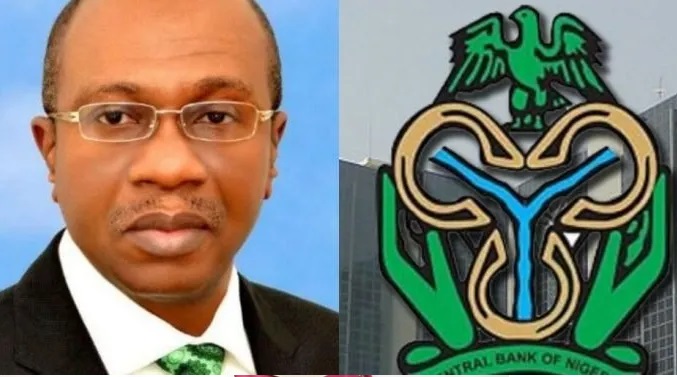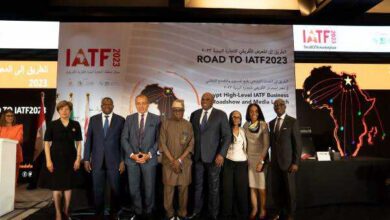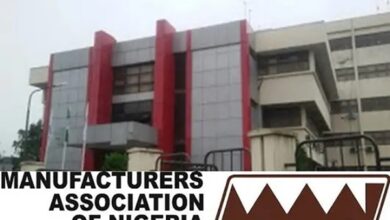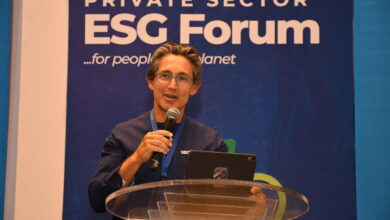CBN’s new monetary policy rate, MPC’s goof and manufacturers’ dilemma

Only recently, the Monetary Policy Committee (MPC) of the Central Bank of Nigeria (CBN) met to review its first quarter (Q1) 2022 previous decisions and increased its Monetary Policy Rate (MPR) to 14 per cent from 13 per cent in May 2022.
But the Manufacturers Association of Nigeria (MAN), the Nigerian Association of Commerce, Industry, Mines and Agriculture (NACCIMA) and the Organised Private Sector (OPS) faulted the MPC’s decision, insisting that the new rate will stifle economic growth and deepen the sufferings of Nigerians, JOHNMARK UKOKO writes.
The Monetary Policy Committee (MPC) of the Central Bank of Nigeria (CBN) meets every quarter to take critical monetary decisions on the country’s economy and in its meeting in May 2022 it retained the MPR at 13 per cent.
However, during its second quarter (Q2 meeting, it increased the MPR from 13 per cent to 14 per cent, for which Nigerians were quick to berate the MPC for its decision, saying it got it wrong this time, considering the struggling economy and the sufferings Nigerians have been subjected to under the current administration.
Groups that berated the MPC include the Manufacturers Association of Nigeria (MAN), which said the MPR goofed in its decision, noting that the committee could not have increased the MPR to check rising inflation, as it claimed.
MAN argued that the CBN could not achieve its rationale for increasing the MPR, which it said, stemmed from the need to curb rising inflation, which recently peaked at 18.6 per cent, to ensure relative stability and sustained economic growth in the face of uncertainties in the global economy.
Read Also: Ishaq Rafiu’s our player as Rivers United debunk deal
In a statement issued by the Director-General of MAN, Segun Ajayi-Kadir, the association said the MPC’s decision would lead to increase in interest rates on loanable funds, which would no doubt compound the intensity of the crowding out effect on private businesses, as firms will have lesser access to funds in the credit market.
The manufacturers maintained that the new MPR rate would also intensify demand crunch emanating from the heavily eroded disposable income of Nigerians, constrained access of households and individuals to cheap funds.
It further stated that the new rate would also lead to the rising cost of manufacturing inputs, which will translate to higher prices of goods, low sales and enormous volume of inventory of unsold products, adding that the new MPR rate would exacerbate the intensity of idle capital assets, worsen the already declining profit margin of private businesses and heighten the mortality rate of small businesses.
They stressed that the new MPR will further reduce capacity utilisations, upscale the rate of unemployment, incidences of crimes and insecurity as the capacity of banks to support production and economic growth is heavily constrained.
The real sector opined the MPR rate will reduce the pace of full recovery of the real sector and make manufacturing performance remain lacklustre, adding that it will lead to leaner contribution to the country’s Gross Domestic product (GDP).
“Clearly, the increase in MPR has widened the journey farther away from the preferred single digits interest rate regime. It is not manufacturing friendly considering the myriad of binding constraints already limiting the performance of the real sector.
“MAN is therefore concerned about the ripple effects of this decision and its implications for the manufacturing sector that is visibly struggling to survive the numerous strangulating fiscal and monetary policy measures and reforms,” the statement stressed.
The manufacturers cautioned the government and the apex bank to do all within their power to improve credit facilities to the real sector in particular and the business sector in general.
“Consequently, manufacturers are hopeful that the stringent conditions for accessing available development funding windows with the CBN will be relaxed to improve the flow of long-term loans to the manufacturing sector at single digit interest rates.
“The expectation is that MPC will ensure that future adjustment of MPR takes into consideration the trend of core inflation rather than basing decisions on headline and food inflation. This will no doubt shield the sector from the backlashes from the 14 MPR, ramp up production and guarantee sustained growth in the overall best interest of the economy,” the statement added.
The backlashes trailing the 14 percent MPR also come from the President of the Nigerian Association of Chambers of Commercial, Industry, Mines and Agriculture (NACCIMA), Ide John C. Udeagbala, said the association also has issue with the new rate, urging the CBN to address all the issues the business community has raised.
Udeagbala said although the MPC members may have valid reasons for increasing the rate, it behoved the apex bank to address all the issues raised against the decision, adding: “While we welcome the MPC’s decision to raise the monetary rate from 13 per cent to 14 per cent, this is an inflation management measure and does not address the root cause of the inflation, which is rising food prices, brought about by the devaluation of the naira and rising energy costs, which has affected production and transportation.”
He also urged the CBN to resolve the issues being highlighted by the various sectors and groups, stressing that the NACCIMA would continue to look forward to the continued implementation of CBN’s intervention in agriculture, healthcare, manufacturing, energy, export and other sectors to ensure improvement in food and energy supply chains.
As the private sector awaits the progress of the Presidential Power Initiative (PPI), immediate intervention is required in the oil and gas sector on which the entire country depended for most of its production and transportation needs.
“Automotive Gas Oil (AGO), also known as diesel and Jet A1 have become prohibitively expensive forcing a lot of enterprises to shut down or scale down their operations. This puts to question the readiness of Nigeria to compete in the global economy especially under the trade agreements like the Africa Continental Free Trade Agreement (AfCFTA).
“If urgent steps are not taken, the resulting non-competitive nature of Nigeria as a consumption economy and dumping ground for all manner of foreign goods and services,” he stressed.
Also, an economist, Dr Muda Yusuf and Chief Executive Officer (CEO) of the Centre for Private Practice Enterprises (CPPE) said the new MPR rate would impact negatively on the real sector
He said the new rate would crowd out the private sector from the credit facility, adding that the MPC failed to consider the plight of the manufacturing sector before fixing the rate.
Respondents berated the MPC members for not considering the various concerns the manufacturers have raised in the past few months and urged the MPC to always consider the views of the country’s manufacturers wherever they want to adjust the MPR rate to avoid worsening the already bad situation of the real sector.
They are at a loss as to why the Federal Government and the CBN do not seem to pay much attention to the various concerns being raised by the players in the manufacturing sector, maintaining that the MPC and the CBN do not seem to feel the pains of local manufacturers were grappling with on a daily basis.
With the barrage of complaints, the MAN has rolled out in recent times, it will be wise for the MPC to think through issues thoroughly before arriving at the rates in future.
Although the CBN governor, Godwin Emefiele, has defended members of the MPC for the new rate, it is left to be seen who is right between members of the MPC and MAN.
An economist, Jude Amadi, said with the new MPR rate, lending rates will rise significantly, insisting that this is based on data from CBN’s money market indicators, which shows a relationship between interest rate hikes whenever monetary policy rates are increased.
“Data from the report shows Nigeria’s prime lending rate, which is the average lending rate in the country printed at about 12 percent lower than the MPR of 14 per cent. The prime lending rate is the lending rate offered to large corporations and blue-chip companies with near triple ‘A’ rating,” he said.
According to Amadi, while the prime lending rate is currently 12 per cent, the maximum lending rate is 27.6 percent more than double the existing prime rate. This data has existed for years, as banks price in the risk of lending to small businesses and individuals.
He stressed that things could get worse if the trends we have seen in recent years were repeated this time around and disclosed that the last time the MPC rate was increased to 14 per cent, the prime lending rate also rose to about 30 per cent.
He explained that this happened in 2017 when the country also faced a similar forex crisis with exchange rate disparity between the black market and the official market rate widening frequently amid forex scarcity.
“Commercial banks in Nigeria implemented interest rate hikes for loans raising rates by as much as 200 basis points when the CBN increased the MPR from.11.5 per cent to 13 per cent. Essentially, interest rate hike is in response to the recent increase in CBN’s monetary policy rate,” he stated.
As of the time of Friday, July 29, 2022, the naira was already exchanging at the parallel market for over N700 to $1, and while the CBN still retained its Import and Exporter (I&E) window at N452.70, manufacturers confirmed that they hardly get up to 20 per cent of their forex needs after queuing for months in the banks.
The weeks ahead will show the impact of the new MPR rate on the country’s manufacturing sector and how the manufacturers will cope with the situation.




